
- Permbajtja
- prev
- next
- prev
- next
Zozaya Arquitectos has built luxurious beachfront residences made of curved walls, smooth corners and sculpted details in Troncones, Mexico.
Named Punta Majahua, the 7,773-square-metre residences are situated in the magnificent surf villa of Troncones, which was designed as a residential complex strategically located in a spectacular ten thousand square meter piece of land on a peninsula, north of Troncones, in the state of Guerrero, Mexico.
Conceived as beachfront residences, architectural language of the villas is very organic, and defined in fluid architectural style that would integrate the best way possible to adapt to the site.
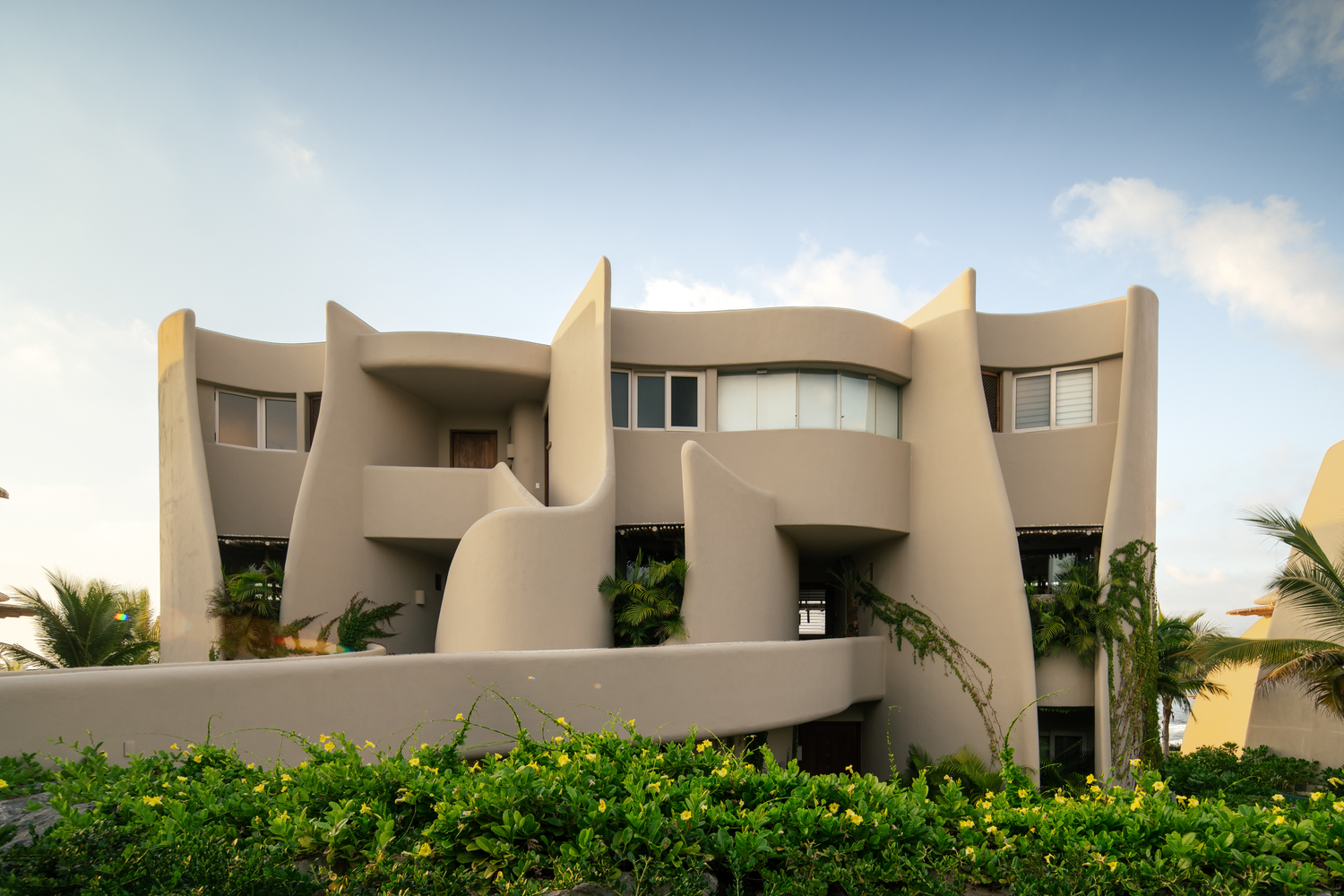
In the masterplan, the complex has 6 buildings with three floors in each, and five to eight residences making a total of 39 units, with a covered garage area, paddle court, a family swimming pool with a semi Olympic lap lane, an administrative office, a gym, staffing and service area, orchards for the resident’s consumption, and green areas.
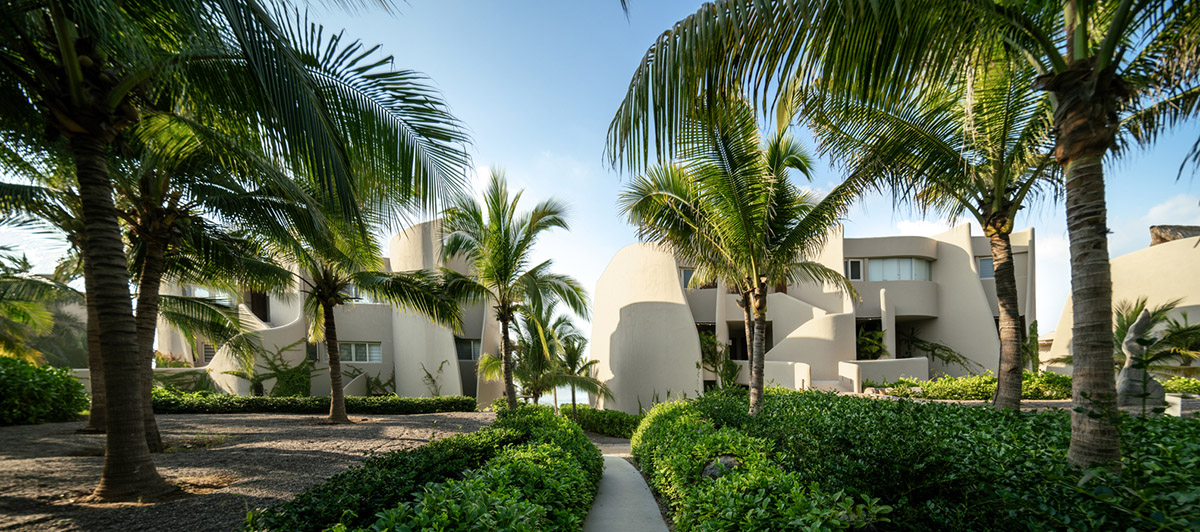
The villas were designed to take advantage of the location and geographic morphology of the land, in this sense, the architects made it their top priority to build in the best location imaginable for these residences, situating them the closest they could possibly get to the ocean.
As a result, the villas can benefit from spectacular ocean views and privacy between units and orientation to the north, which is ideal by the beach for reducing energy consumption, so as to keep the units sufficiently cooled.
On the ground floor, all residences have semiprivate gardens with exclusive exits to the beach, and the upper units distinguish themselves for their ocean views and the Sierra Madre on the back facade.
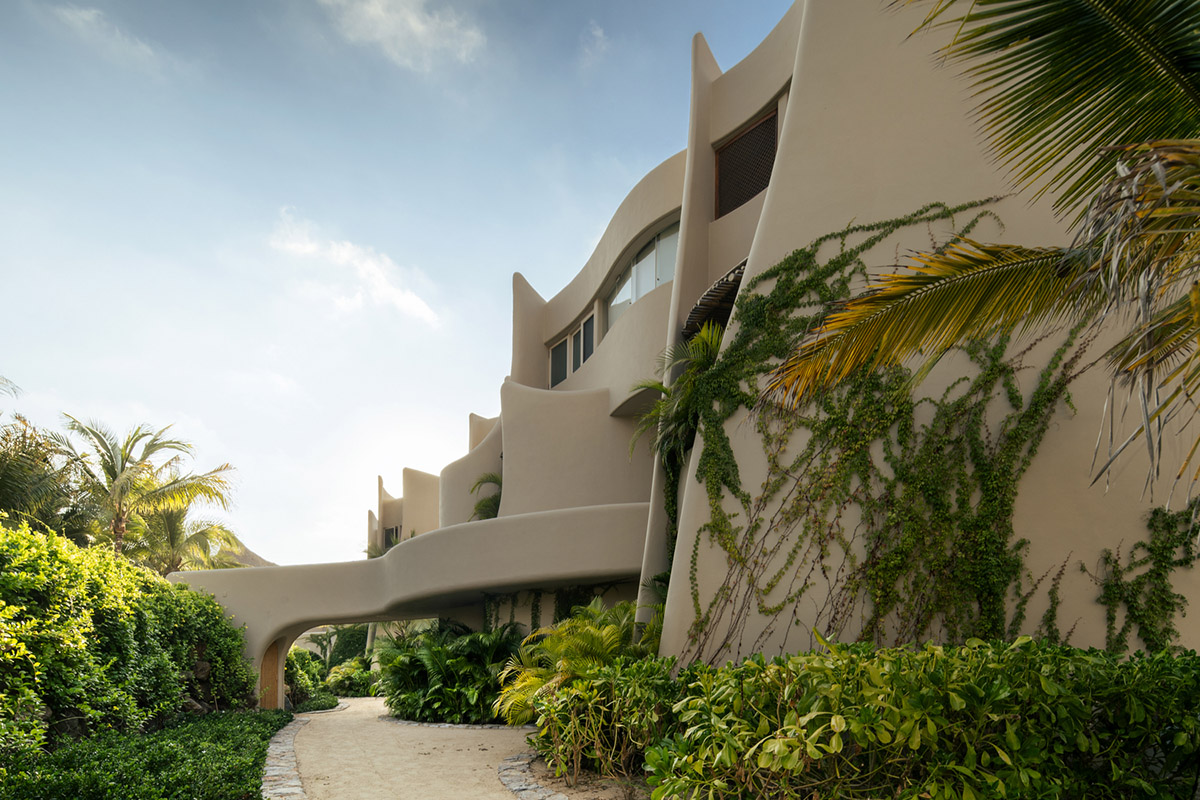
"The architectural style of the project centers upon the use of curved walls on ground floors, and facades," said Zozaya Arquitectos.
"As we break away from the traditional ninety-degree angles, we create very specially, and unique homes, where the use of curved walls allowed us to resolve the spaces in a more integral way, and we exponentially improved the view, orientations, and crossed ventilation."
"Consequently, we created fluid and dynamic volumes, in which we achieved a balance between vernacular and contemporary architecture to create residences that are functional, and easy to keep up," added the firm.

For the materials, the architects chose local materials, materials that are normally used in the traditional Zihuantanejo coastal style, such as masonry walls, bamboo, dry palm branches for the gazebos and palapas, river Stones for the ornamentation of rugs and baseboards in the interiors, bush-hammered marble floors, parota wood, and bamboo carpentry.
For the landscaping of the project, the studio made an extensive analysis on site and tried to understand the local ecosystem, due to the scarcity of water in the region.
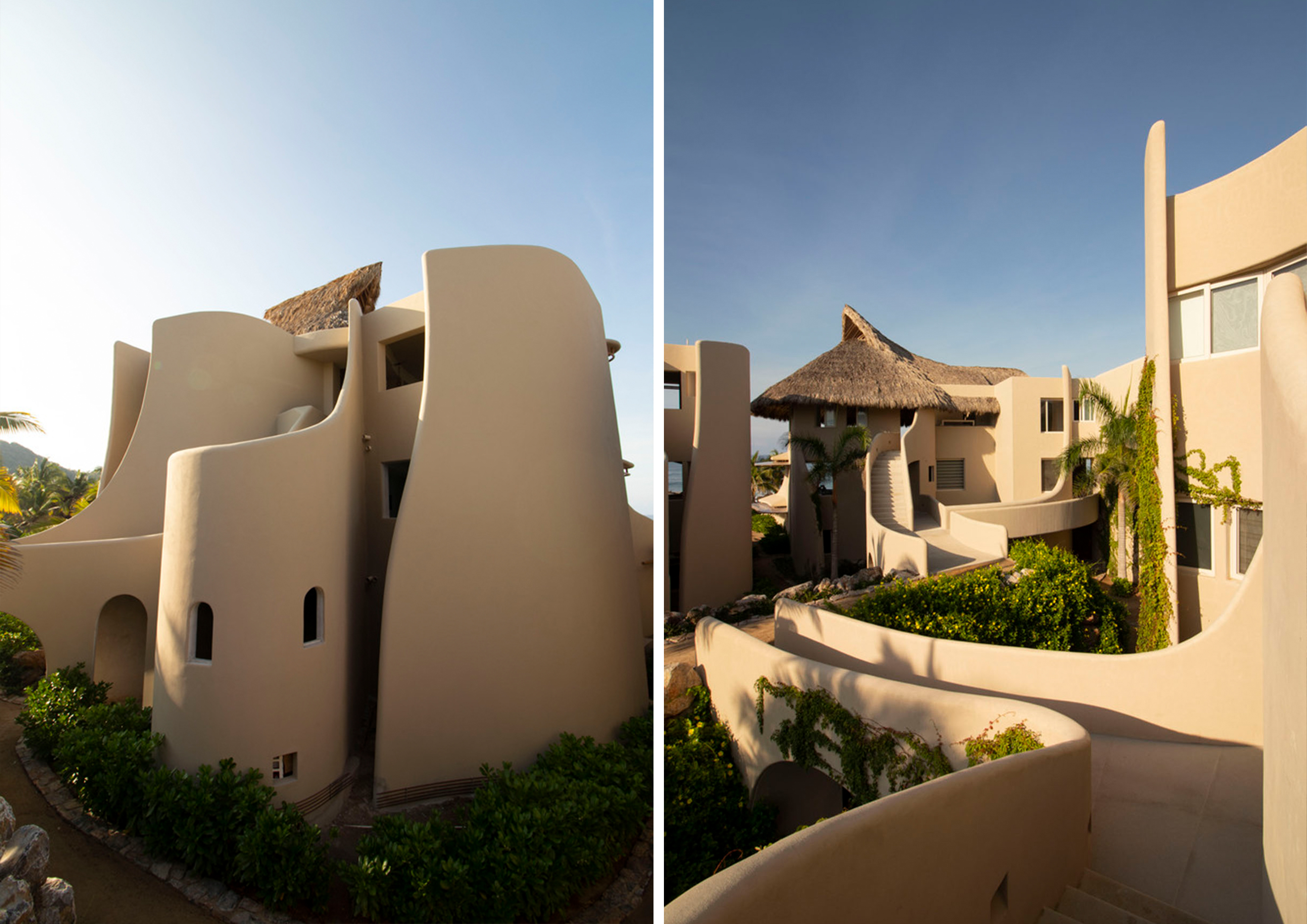
"The area is composed of a regenerative landscape, using a regional vegetable palette, with low water consumption, and is easily able to withstand the ocean breeze, and salinity, as well as the planting of local fruit trees, and the use of turf and gravel in various sections in order to reduce water consumption," as the team explained.
"It is worth mentioning that the project has its very own residual water treatment plant, hence reusing the water to water the plants. This means that greywater is used to feed the plants, which thrive in such conditions."
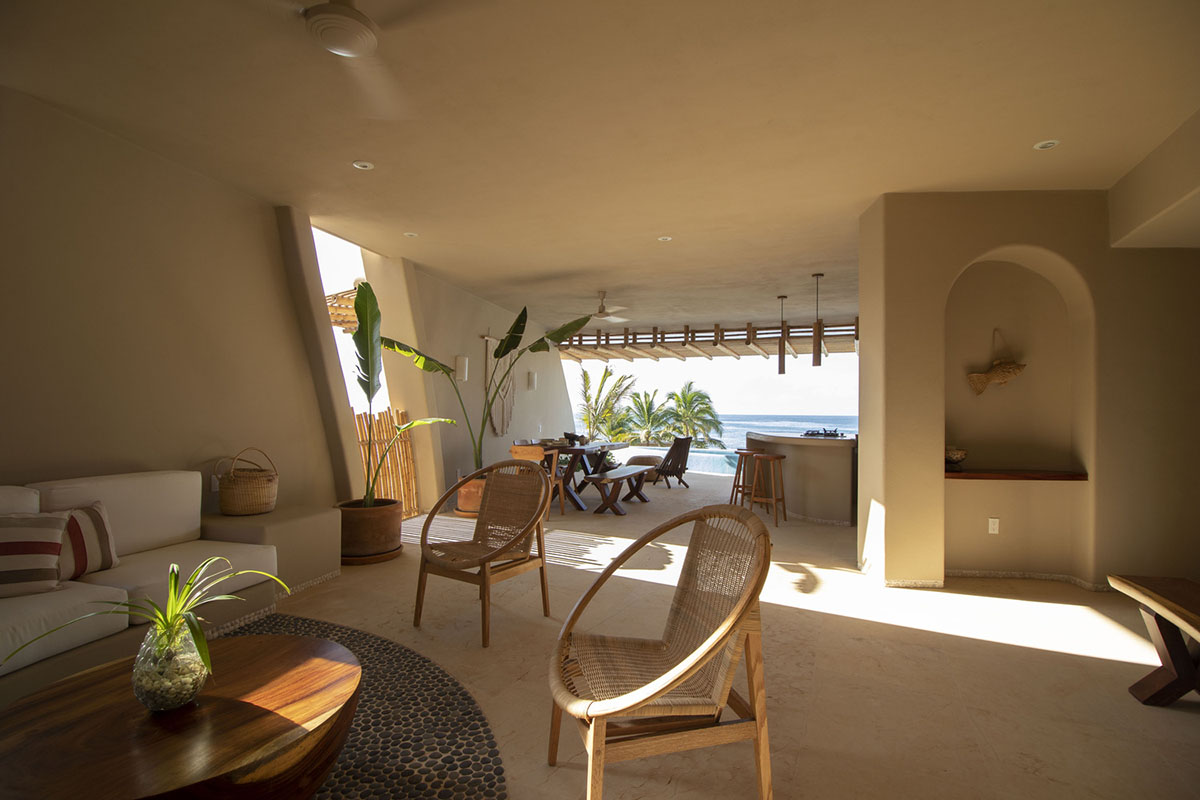
The studio stated that Punta Majahua is absolutely outstanding for its symbiosis and integration to nature, and without a doubt, groundbreaking to the development of the Troncones Community, which has gained great popularity and prestige among international tourists, who flock to the region for not only a place with excellent waves."
"But also it has a different and new lifestyle, with a more natural, organic, harmonious vibration, and feel aligned with the coasts of the Mexican Pacific, which are the perfect ingredients for natural life."
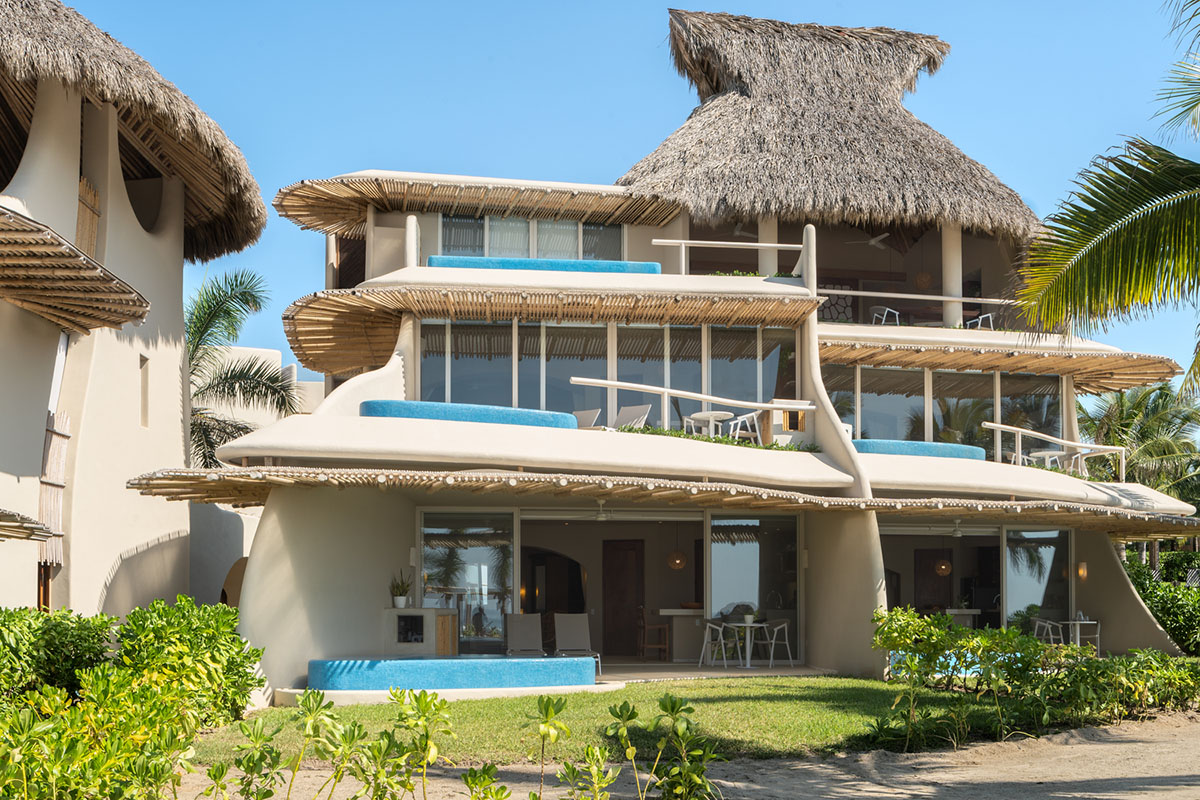
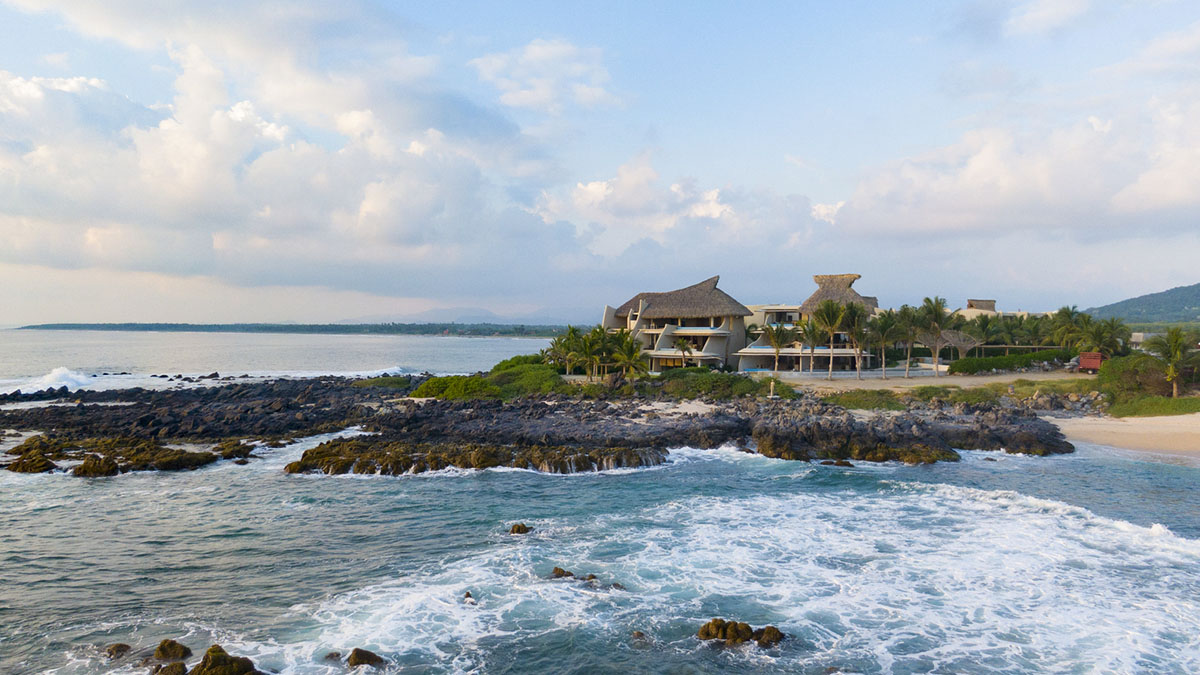
Source: worldarchitecture.org